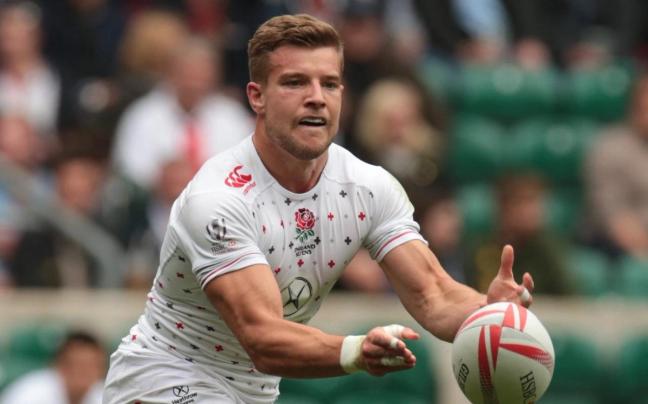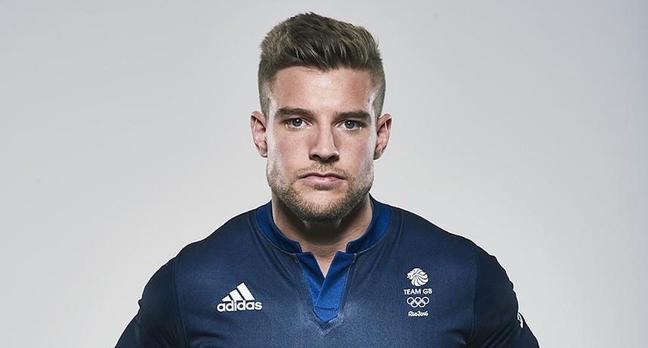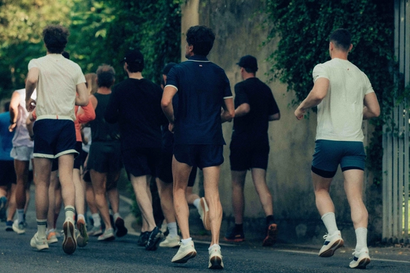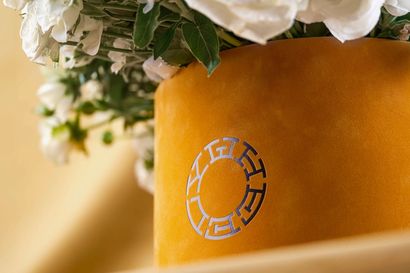Narrowly missing out to Fiji may not have been the result that any Team GB supporter was looking for, but no one can deny the fight that our team put forward in the first ever rugby sevens tournament to grace the Olympic stadium. Here, just before he went to Rio, we spoke to captain Tom Mitchell about how he prepared for the biggest fight of his life…
“Sevens is only 14 minutes long, but it’s 14 minutes of intense action. The ball is in play for a lot of the game, you normally have a try approximately every 2 minutes. There’s obviously a lot more space on the pitch, so there’s a lot more running around, so players need to be fitter in a different kind of way. We need to be able to run at high intensity for the whole of the 14 minutes, and players also need to, generally speaking, be a bit quicker then the 15-a-side guys across the board. From 1-7, all players need to have a base level of speed that allows them to compete on the field. Being biased, I think that Sevens is a little bit more exciting.”
“The way that it’s gone in the last few years is that pretty much all of the teams in the World Series have full time Sevens spec. I’ve been playing Sevens since 2012, my last game of 15-a-side was actually in 2011 and that was for university, so it’s been a while. Some of the guys on the GB squad though, they came from 15-a-side teams, so Marcus Watson who was at Newcastle last year, James Davies who was at Scarlets and Mark Bennett who was at Glasgow, and everyone else is Sevens all year round.”
“I started playing when I was 8, just because I enjoyed it. I actually played a lot of sports when I was younger; I actually wanted to be a professional footballer initially but I also played basketball, tennis, cricket, athletics. I actually did everything, I loved all sport, and when I went to Bristol for university, I played rugby there. So, I guess in terms of professional rugby, I was a bit of a late bloomer because after my undergrad at Bristol, I actually went to Oxford for a year to do a postgrad, and it was from there that I got into Sevens. I was 21 when I got into the professional set up. I had represented England Students through university but I’d never had any attachment to any professional clubs or anything, and my first professional contract was for England 7s. I’ve been doing that ever since.”
“I’ve had a few serious injuries throughout the years. I’ve broken both legs, I’ve had injuries to my shoulders and I’ve had operations on both of my knees, so over the years I’ve had a few set backs in that respect. But, I think whenever we take the field, we know that there is a degree of risk. For me, the rewards definitely outweigh the risks. It’s my job, it’s the way I make a living so there is that side of it as well, but I would still play as an amateur and just for fun.”

Rex Features
“The rewards and the enjoyment of it and the friends you make through the sport, all of the awesome experiences I’ve had since I’ve been playing professionally in terms of travelling and going to new places and meeting people – all of that stuff massively outweighs the risks for me. And when you come out of the injuries, it’s just a case of getting your head down and working through it. Sometimes, they can actually be quite positive because they might reveal something about you that you didn’t know before and you can come back better than that.”
“It’s been an interesting year. All of us who wanted to make it to Rio have had this as our aim since the beginning of the year really, we worked hard and played hard to make it into the squad. In the 2 months leading up to Rio, we were playing as a wider squad of 27 and everyone was so competitive with each other, just trying to outwork each other, to push each other. We wanted to get the best out of themselves so that people were actually in with a chance of making the final 12. It’s been a very intense period of work, and those of us that made it to Rio were very fortunate.”
It’s been a very intense period of work, and those of us that made it to Rio were very fortunate
“Our training is different, but leading up to Rio a normal training week was this: start the week with a fitness test – a 1200 metre run as fast as you can. It’s pretty brutal and you feel pretty knackered after that. In the week somewhere we’ll do 4 weight sessions, which will be strength and power based, so lots of jump squats and stuff like that. Then we’ll also have 2 dedicated speed sessions where we are working on speed and sprint technique – obviously that’s quite important for Sevens – and then we will have 4-5 rugby sessions during the week. Those will vary in intensity and normally 2 of those are harder than the others; one will be a full contact session so we will go full-on against each other, 7 on 7, and then the other one will be a high fatigue session, so we’ll do fitness in between the rugby games to try and get our fatigue levels up so we’re stimulating it again and again throughout the game. It’s pretty full on, the time you’re working for is pretty short, the rugby game will be 60-70 minutes and the gym session will be similar, a speed session is normally 30-40 minutes, but it’s intense. We also fit in team meetings and analysis and physio work around those.”
“Everyone who was involved in the set up was so excited about GB. regardless of the outcome. We already made history just doing what we’re doing, this is the first time that anything like this has ever been done. The guys that went out to Rio were just so excited to represent GB and meet the other athletes, but also to represent the nation and to play the sport that we love and to showcase that to the world. There will be lots of people watching that will like it, get interested and then potentially want to get involved with it afterwards.”
We were excited to represent the nation and to play the sport that we love and to showcase that to the world

The Telegraph
“There’s a different feel to Rio for sure. I don’t know how human you are if you don’t feel nerves in that moment. Once I’m out there throwing the ball around, those nerves go, and I get excited about going out there and playing rugby.”
“The most important outcome for this is to encourage more and more people to take up the game – not just Sevens, but rugby in general. I would really enjoy it if there were kids out there who took it up and were then able to enjoy the fruits of it in the same way that I have. So, leaving a legacy after Rio would be brilliant outcome.”
“At this point, I’d be happy if the Olympics was the pinnacle of me career, but I’m always looking to the next challenge…”
Tom is represented by View Sports.

Become a Gentleman’s Journal Member?
Like the Gentleman’s Journal? Why not join the Clubhouse, a special kind of private club where members receive offers and experiences from hand-picked, premium brands. You will also receive invites to exclusive events, the quarterly print magazine delivered directly to your door and your own membership card.


